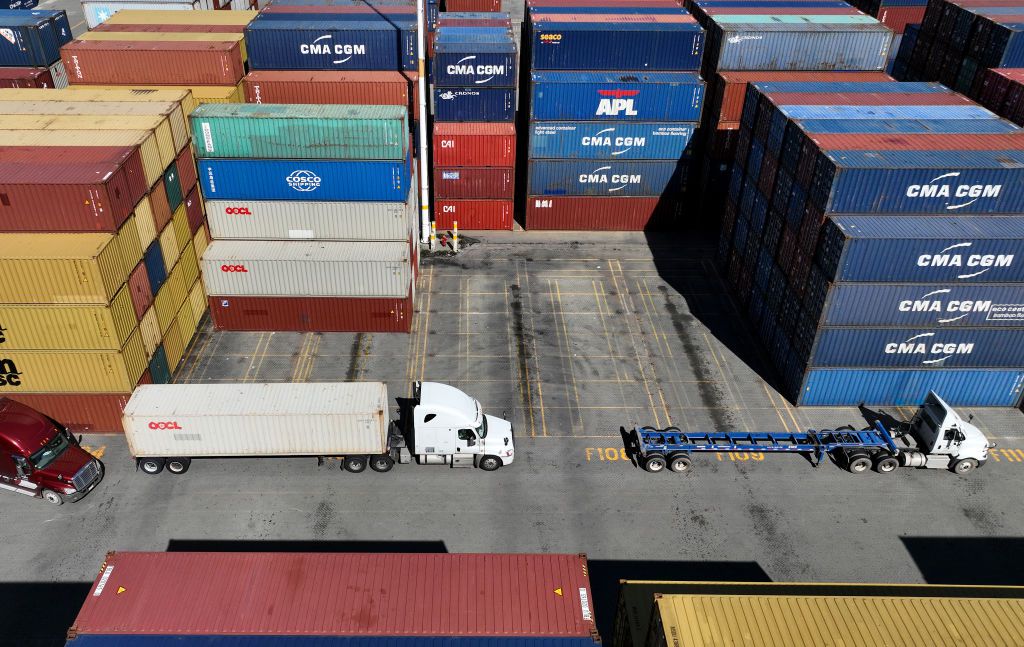Justin Sullivan / Staff / Getty Images
Business optimism fell sharply for the third straight quarter in 2025 thanks to trade uncertainty.
-
Global business optimism has fallen for three straight quarters as a new survey showed that uncertain tariff and trade policies are creating fears of supply chain disruptions.
-
More than half of the businesses surveyed said they were looking for alternatives to the U.S. and Chinese markets due to the trade pressures.
-
Tariffs have affected metal manufacturing, automotive, and capital goods production the most, undermining investment confidence.
Global business optimism sank again in the third quarter as worries over U.S. trade and tariff policies led some businesses to look for alternatives to U.S. markets.
A global survey of 10,000 businesses found that optimism has dropped by nearly 20% so far this year, according to data from Dun & Bradstreet. The results show that business concerns over the challenging trade environment are accelerating as companies struggle to adapt to tariffs.
“The renewed dip in Q3 suggests that businesses continue to grapple with a challenging external environment and may be adopting a more cautious stance as a result,” the report said. “These declines reflect not only the burden of existing tariffs but also rising uncertainty about what the U.S. might do next.”
Deteriorating business sentiment worldwide has the potential to harm foreign investment in the U.S. and reduce demand for U.S. exports. This could slow the economy, hurt corporate profits and increase market volatility.
Uncertainty surrounding U.S. tariffs has lead many international businesses to look for alternatives to American markets. More than half of surveyed businesses outside of the U.S. are seeking new trading partners beyond America, and the same share say they expect U.S. trade policies to get even worse.
”Amid rising tariff pressures, businesses are prioritizing domestic markets and diversifying beyond the Chinese Mainland and the U.S.,” the report said.
The survey also showed a growing pessimism about supply chain stability and the investment environment.
North American manufacturing businesses saw the steepest drop in supply chain confidence this year. The results also indicate that businesses are prioritizing supply-chain resilience over managing costs. The report showed that metal manufacturing, capital goods production and the automotive sector have been hit particularly hard by the trade policies.
“This severe downturn could be particularly indicative of the impact of ongoing U.S. tariff policies and trade disputes directly affecting North American production and sourcing,” the report said.
Increasing worries about supply chain stability have affected investment confidence as well. The survey found that sentiment fell more than 16% in the U.S. in the third quarter, more than the global average, as businesses worry whether they can get the funding they need to run their operations.
“Despite many major central banks lowering interest rates so far this year, a significant increase in uncertainty for global trade, supply chains, and geopolitics has dominated business capital expenditure decisions,” the report said. “Any easing of trade tensions would bring stability to supply chains and trade routes; businesses have cited supply chains as more important for investment decisions than trade uncertainty.”
Read the original article on Investopedia
